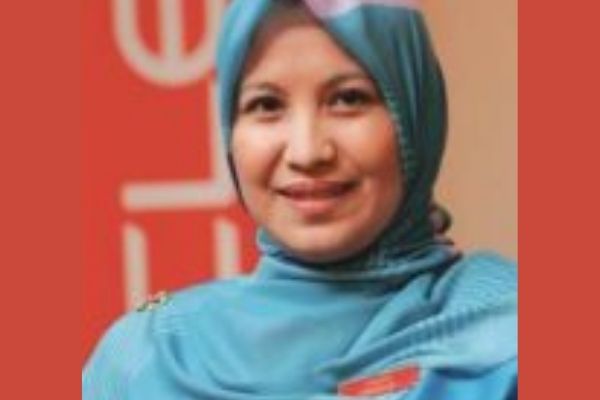
Malaysia’s eGovernance Centre of Excellence was launched in August 2005 by Oracle Corporation Malaysia at new hi-tech city of Cyberjaya. The center is the fifth e-Governance Centre of Excellence in the Asia Pacific region that is supported by Oracle. Others are located in India, Philippines, Sri Lanka and China.
The centre has been established to support the initiatives of the Government of Malaysia in adopting information technology in governance and society. It aims to accelerate IT projects among government organisations and govern-ment-linked companies in the country.
According to Hayati Harudin, “The centre was setup because we wanted to become a key enabler for country’s vision for ‘Vision 2020’. It is trying to create an ecosystem of linkages between centre and the government, centre and the education sector, and centre and the community of independent software vendors. We are working with the government in order to help them realise some of the key concepts that can allow for a higher adoption rate in ICT for effective governance. We are trying to accelerate adoption of e-Governance through innovative ideas and thought leadership based on the knowledge and expertise we have in the region through this network of CoEs.”

Oracle plans to invest RM 10 million in the Centre of Excellence over a period of three years. In short span of a few months, the Centre has already begun building on the existing knowledge base of the Malaysian Public Sector. It not only plans to drive successful adoption of IT strategies and projects but also share global best practices in the years to come. As Hayati says, “We are working very hard to become a strategic adviser to the government. As the centre is still very new, barely four months old, we have yet to establish its capabilities and gain due recognition in the market to achieve that status. This will be the first and most important challenge for the centre.”
Sharing her opinion about the
e-Government applications in Malaysia, Hayati added, “They can be divided into two categories. The first category is of e-Government flagship, and this was the synopsis of realisation of Multimedia Super Corridor. Under the flagship, there are a series of applications. To name a few, they are Electronic Procurement, Project Monitoring System, Human Resource Management Information System (HRMIS), etc. Now the other category of e-Government applications is agency-led projects. Some of the examples are e-Tanah and e-Courts. e-Tanah for example is spearheaded by the Ministry of Natural Resources and Environment and it is an e-Government application. The e-Government initiatives are to improve internal efficiency and also deliver citizen services. Electronic Procurement and Electronic Services are examples of e-government delivery of services for the public. To deliver best value from these services, their usage have to be aggressively promoted.”

A pressing concern of the government at the moment is the huge number of unemployed graduates in the country and, the centre has stepped-up to assist in addressing this issue. Hayati says, “Universities are producing graduates whose skills and competency do not match the industry requirements, resulting in these unemployed graduates. We have been advising the education sector to consider incorporating curriculum on leading world-class technology and applications, besides providing and better-recognised certifications to help these graduates to become more marketable. We are also forming collaborations with the Universities, so that students can conduct research programmes in collaboration with the COE. With the programs we offer for higher education, graduates are equipped with core Oracle skills, which is very much in demand in the market.”
Also Read: Ariba: Transforming Spend Management : T. Sivakumar, Group Director Ariba India
The centre is expected to include a showcase of solutions from Oracle partners. The centre plans to eventually evolve to become an avenue for Malaysian IT vendors to develop their solutions based on Oracle’s technology and application products. As Hayati told, “We recently conducted a workshop in Malaysia around the topic of RFID – on how RFID can be used in e-Governance. In these kind of workshops, our customers seem to be a lot more open in sharing their concerns. By doing so, we can understand their situation better and advise them more effectively.”
The centre is also acting as an important stepping-stone for local Oracle Independent Software Vendor (ISV) partners as they prepare to enter into the global software solutions market.
The Centre’s future plan is to step into Bio-informatics. Hayati said concluding, “We would like to grow in the area of Bio-informatics. We welcome opportunities to partner and work with some of the established research institutions in India to work with us.”
Be a part of Elets Collaborative Initiatives. Join Us for Upcoming Events and explore business opportunities. Like us on Facebook , connect with us on LinkedIn and follow us on Twitter, Instagram.











